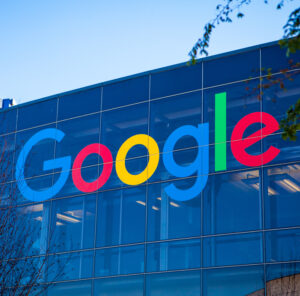Healthy habits are hard to form and even harder to maintain, especially after a lifetime of neglecting the advice of doctors to eat better and exercise more.
Not a bad metaphor for how the online advertising ecosystem has been operating – and a big reason why it’s now facing a reckoning in the form of regulations and scrutiny of certain less-than-salubrious practices.
“The media ecosystem has become pretty unhealthy over the years, with way too many vendors collecting way too much data and making way too many bids and small tweaks to their technology that don’t add enough value,” said Dennis Buchheim, who’s spent quite a lot of time deep in the weeds of ad tech in executive roles at Microsoft, Yahoo, IAB Tech Lab and Meta.
After leaving Meta last year, Buchheim founded an advisory firm called ThinkMedium. Its goal is to help advertisers, publishers and ad tech companies embrace data privacy, safety and efficiency, including sustainability.
Tall order.
But there are reasons to be optimistic about the future, according to Buchheim.
Compared to even just a year ago, he said, “there’s more awareness of what needs to be done for our ecosystem to be healthy.”
“Now, we need to get to a point where we prioritize these things and think about them as opportunities rather than only making changes in reaction to laws, regulations and platform policies,” he continued.
Buchheim spoke with AdExchanger.
AdExchanger: The ad industry is facing big challenges, so why “think medium” – why not think big?
DENNIS BUCHHEIM: It’s about taking a more pragmatic and methodical approach. Clients have a lot of short-term concerns, like hitting their revenue targets every quarter, and also big bets to make, like investing in technology that’ll help them compete multiple years down the road.
But I’d argue that companies often neglect what they should be doing in the medium term, like creating a strong foundation for privacy and data protection, consumer safety, brand safety and sustainability – both for their business and the environment.
What’s an example of pragmatism in practice?
A big one for marketers and publishers is understanding what’s happening with their entire supply chain and whether the vendors they work with are providing value, from creative production all the way to the cost of bidding.
That can be an eye-opening exercise.
Although the answer isn’t just as simple as cutting partners out of the supply chain, right?
There’s definitely more nuance to this than “more vendors equals bad.” You want to make sure you’re not removing any of the high-value parties you work with, and you also don’t want to cut all your small vendors and only work with the big ones.
You need some form of measurement if you want to assess all that. From an environmental point of view, Scope3 has done good work, and the IAB Tech Lab’s sustainability working group has started defining best practices and guidelines.
But we don’t need a perfect measurement metric to get started taking stock and making progress on what are very intertwined issues, like sustainability and supply-path optimization.
My work inbox is bursting with pitches from ad tech vendors bragging about how sustainable they are now. And good for them – if their claims are true! Is greenwashing going to become a problem for ad tech?
Perhaps yes. But more so than greenwashing, I think the bigger issue now is the conflation of sustainability with SPO. Tying SPO and sustainability too closely together runs the risk of missing the point.
That’s why measurement is crucial, so we can make intelligent decisions rather than reactionary decisions.
There’s no easy answer, though. Sometimes the solution to a problem can itself cause another problem. For example, the digital ad ecosystem is building its future on privacy-enhancing technologies. And PETs are a good thing, but they also require a lot of computing power at scale, which could make them not so great from a sustainability perspective. Facetious question, but is privacy “bad” for the environment?
I’d describe myself more as a realist than an optimist, but, on a good day, my optimism says that conflicting forces can create concerted momentum in the right direction and result in more and better collaboration, which is something I’ve been trying to push for a long time.
Both issues – privacy and sustainability – are getting a lot of attention now, and deservedly.
But if every single vendor, publisher and advertiser were to try and solve for privacy or sustainability in isolation and operate PET-based solutions in silos, that would be horribly inefficient, right?
The bigger opportunity is figuring out what we can do collectively to create foundational capabilities based on PETs, as well as best practices, standards and shared infrastructure. We need to start thinking about privacy-enhancing technologies as a shared utility.
If you’re an optimist on a good day, what’s on your mind on a bad day?
I think about how you could say the industry overshot the mark. There was almost too much innovation at once and too many little slivers of supposed value we were attempting to add. That process led us to create an ecosystem that is arguably too complex, with data challenges and a lack of efficiency.
But that’s why it’s time to take a step back and ask: “What would we do if we could start again?”
There’s no one answer to that, but it has to involve transparency, dependability, safety and efficiency.
After a bad day, there’s always the next day. And that’s when I start thinking about what we can do to refactor the ecosystem and how we can solve these problems faster.
This interview has been edited and condensed.
For more articles featuring Dennis Buchheim, click here.

















